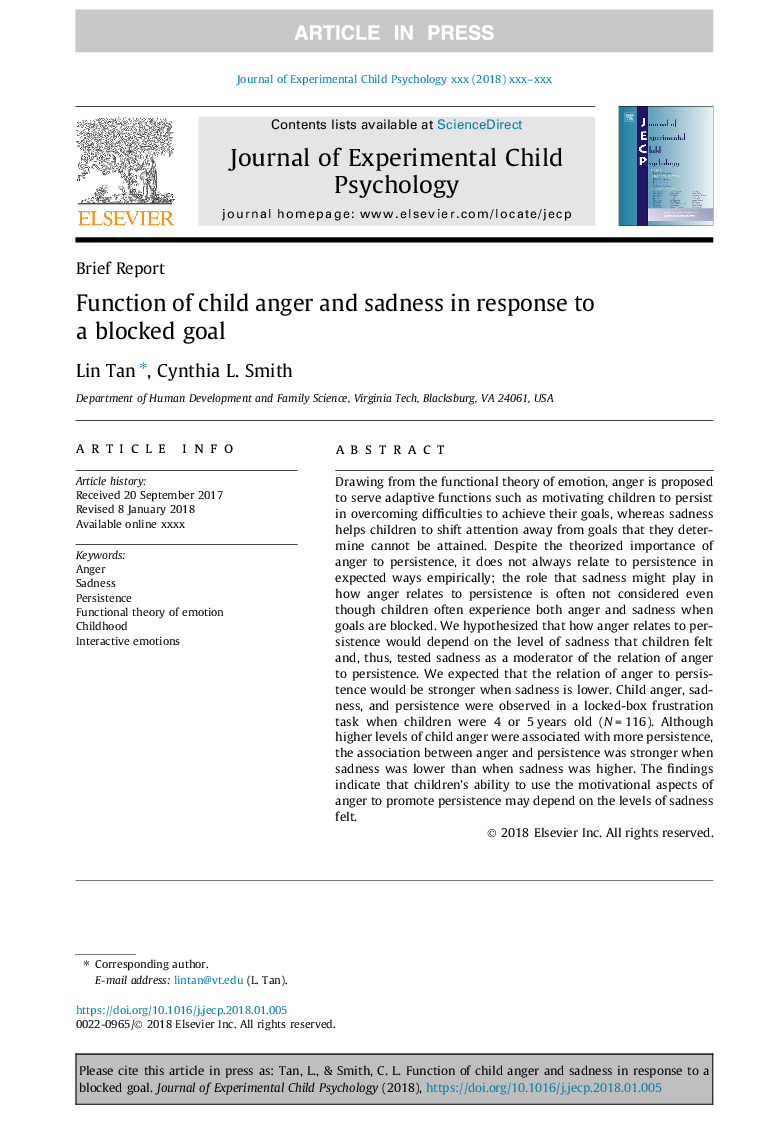| Article ID | Journal | Published Year | Pages | File Type |
|---|---|---|---|---|
| 7274025 | Journal of Experimental Child Psychology | 2018 | 7 Pages |
Abstract
Drawing from the functional theory of emotion, anger is proposed to serve adaptive functions such as motivating children to persist in overcoming difficulties to achieve their goals, whereas sadness helps children to shift attention away from goals that they determine cannot be attained. Despite the theorized importance of anger to persistence, it does not always relate to persistence in expected ways empirically; the role that sadness might play in how anger relates to persistence is often not considered even though children often experience both anger and sadness when goals are blocked. We hypothesized that how anger relates to persistence would depend on the level of sadness that children felt and, thus, tested sadness as a moderator of the relation of anger to persistence. We expected that the relation of anger to persistence would be stronger when sadness is lower. Child anger, sadness, and persistence were observed in a locked-box frustration task when children were 4 or 5â¯years old (Nâ¯=â¯116). Although higher levels of child anger were associated with more persistence, the association between anger and persistence was stronger when sadness was lower than when sadness was higher. The findings indicate that children's ability to use the motivational aspects of anger to promote persistence may depend on the levels of sadness felt.
Keywords
Related Topics
Social Sciences and Humanities
Psychology
Developmental and Educational Psychology
Authors
Lin Tan, Cynthia L. Smith,
